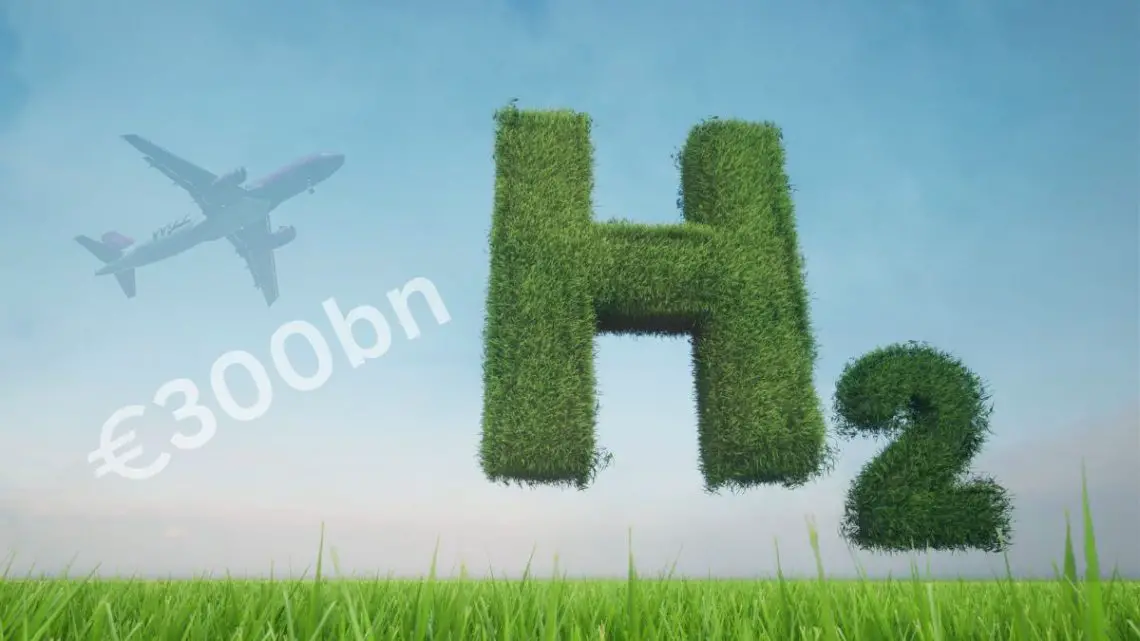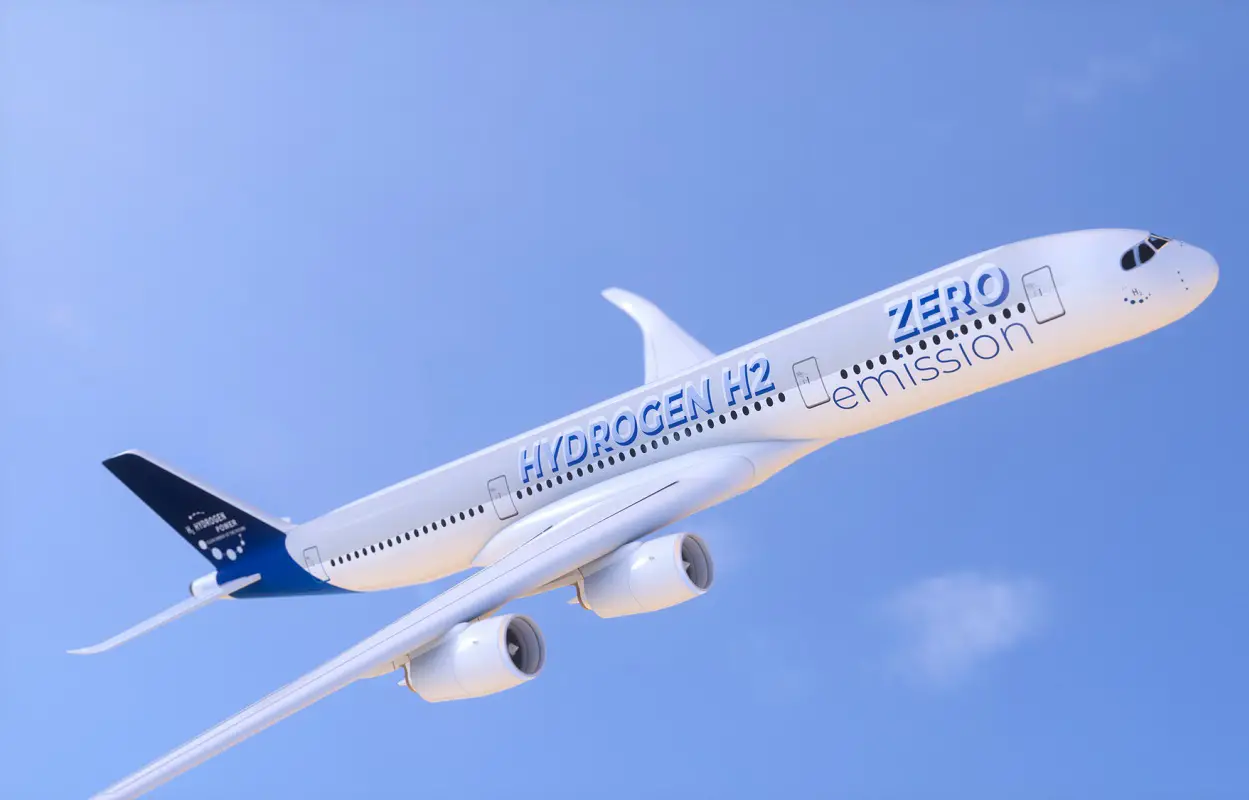
To Make the Switch to Hydrogen Planes EU Aviation Needs Billions
May 30, 2023Policymakers driving green aviation face a huge challenge, says research.
A recent study published by clean energy group NGO Transport & Environment found that, in order for Europe to make the transition to green hydrogen planes, the cost of developing the necessary hydrogen supply chain in the continent would be €299 billion ($320 billion) between 2025 and 2050.
Green hydrogen production, liquefication and distribution will make up most of the cost.
Unless kerosene was taxed, the study estimated that the high cost required for the H2 switch would make hydrogen planes 8% more expensive than traditional jet-fueled aircraft in 2035. That said, the study found that if jet fuel was taxed along with the introduction of a price on carbon emissions, operating hydrogen fuel planes could be 2% cheaper.
Carbon is currently priced at slightly less than €85 per ton. The research factored in a carbon price of €127 per ton of carbon dioxide by 2035. Although taxing kerosene has not been introduced yet, the Transport & Environment group based its calculations for a tax in line with present proposals set forth by the European Commission. The research estimates a tax of approximately €0.37 per liter. Today, the price of jet fuel is approximately €0.55 per liter.
Airbus believes taxation is not the solution to bring hydrogen planes to market.
The largest airplane maker in the world intends to have hydrogen planes flying by 2035. However, according to a Financial Times report, Airbus said that while it is committed to bringing the first H2 commercial aircraft to market by 2035, “taxation is not the solution to get there.”

Credit: Photo by depositphotos.com
Airbus believes that “Incentives which promote investment in technologies and infrastructure, as well carbon pricing and market-based measures, provide a more cost-efficient way to deliver the necessary reduction in aviation emissions.”
However, aviation technical manager at Transport & Environment, Carlos López de la Osa, says that if Airbus is to “walk the talk”, a market will need to be created for zero emission aircraft “by taxing fossil jet fuel and mandating zero emission planes in the future.”
Decarbonizing aviation remains a challenge
 Due to factors such as battery technology not yet being advanced enough to power aircraft beyond short distances and the challenges and costs associated with the development and integration of hydrogen technologies in aircrafts, aviation is one of the hardest industries to decarbonize.
Due to factors such as battery technology not yet being advanced enough to power aircraft beyond short distances and the challenges and costs associated with the development and integration of hydrogen technologies in aircrafts, aviation is one of the hardest industries to decarbonize.
The bottom line is that the study’s analysis found that an investment of €299 billion and a tax on traditional jet fuels will be needed in order for hydrogen planes to be rolled out in Europe to replace conventional fossil fuel-powered aircrafts in the future.
Ready to test your knowledge on the most abundant element in the universe? Take our fun and engaging Hydrogen Quiz now! [forminator_quiz id=”58712″]



 With over 15 years of reporting hydrogen news, we are your premier source for the latest updates and insights in hydrogen and renewable energy.
With over 15 years of reporting hydrogen news, we are your premier source for the latest updates and insights in hydrogen and renewable energy.
Wonder if E-methanol produced from captured CO2 and green hydrogen would make the transition cheaper particularly with regard to aircraft propulsion system and perhaps with ease of transportation of the fuel.